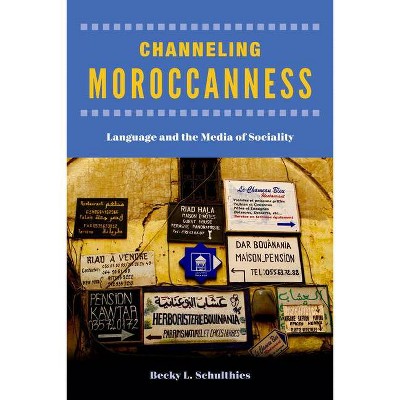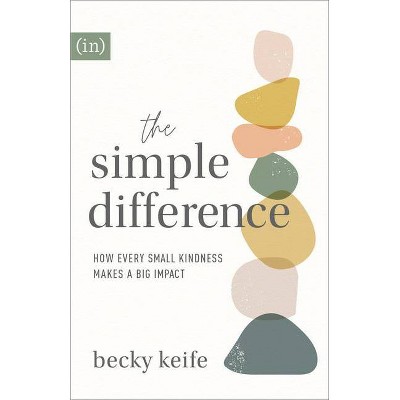Channeling Moroccanness - by Becky L Schulthies (Hardcover)

Similar Products
Products of same category from the store
AllProduct info
<p/><br></br><p><b> About the Book </b></p></br></br><b>This book explores how Moroccans engage communicative failure as they seek to shape social and political relations in urban Fez.</b><p/><br></br><p><b> Book Synopsis </b></p></br></br><p>What does it mean to connect as a people through mass media? This book approaches that question by exploring how Moroccans engage communicative failure as they seek to shape social and political relations in urban Fez. Over the last decade, laments of language and media failure in Fez have focused not just on social relations that used to be and have been lost but also on what ought to be and had yet to be realized. Such laments have transpired in a range of communication channels, from objects such as devotional prayer beads and remote controls; to interactional forms such as storytelling, dress styles, and orthography; to media platforms like television news, religious stations, or WhatsApp group chats. <p/><i>Channeling Moroccanness</i> examines these laments as ways of speaking that created Moroccanness, the feeling of participating in the ongoing formations of Moroccan relationality. Rather than furthering the discourse about Morocco's conflict between liberal secularists and religious conservatives, this ethnography shows the subtle range of ideologies and practices evoked in Fassi homes to calibrate Moroccan sociality and political consciousness.</p><p/><br></br><p><b> Review Quotes </b></p></br></br><br>...<i>Channeling Moroccanness</i> offers a welcome intervention into what can often be stale and binary debates about language, religion, identity, and politics in the contemporary Maghrib. It also offers an innovative way of conceptualizing and studying national identities and national publics through the lens of lament and communicative failure. Perhaps most importantly, it offers a subtle sense of hope for the possibility of social connection to exist despite, or perhaps even because of fractures.-- "The Middle East Journal"<br><br>[An] analytically sophisticated attemptby a sociolinguist to reveal how a group of urban Moroccans critically use different linguistic channels to confirm their identity and reestablish their connectedness as fellow Moroccans. Recommended.-- "Choice"<br><br><i>Channeling Moroccanness </i>is highly readable and brisk. Schulthies's intimate descriptions of timely media practices and Moroccans' discussions of their effects contribute important ethnographic detail on the weaving of technological media into everyday communications and evince her extensive ethnographic labor. This is a vital and compelling book.<b>---Emilio Spadola, Colgate University, <i></i></b><br><br>In <i>Channeling Moroccanness</i>, Becky Schulthies challenges anthropological linguistics by pushing beyond the speech event to different contexts of speaking, listening, and viewing to come up with what she calls a 'calibration' of Moroccan sociality. The book is an important and distinctive contribution to the ethnography of Morocco.<b>---Steven Caton, Harvard University, <i></i></b><br><p/><br></br><p><b> About the Author </b></p></br></br><b>Becky Schulthies</b> is Associate Professor of Anthropology at Rutgers University.
Price History
Price Archive shows prices from various stores, lets you see history and find the cheapest. There is no actual sale on the website. For all support, inquiry and suggestion messagescommunication@pricearchive.us



















